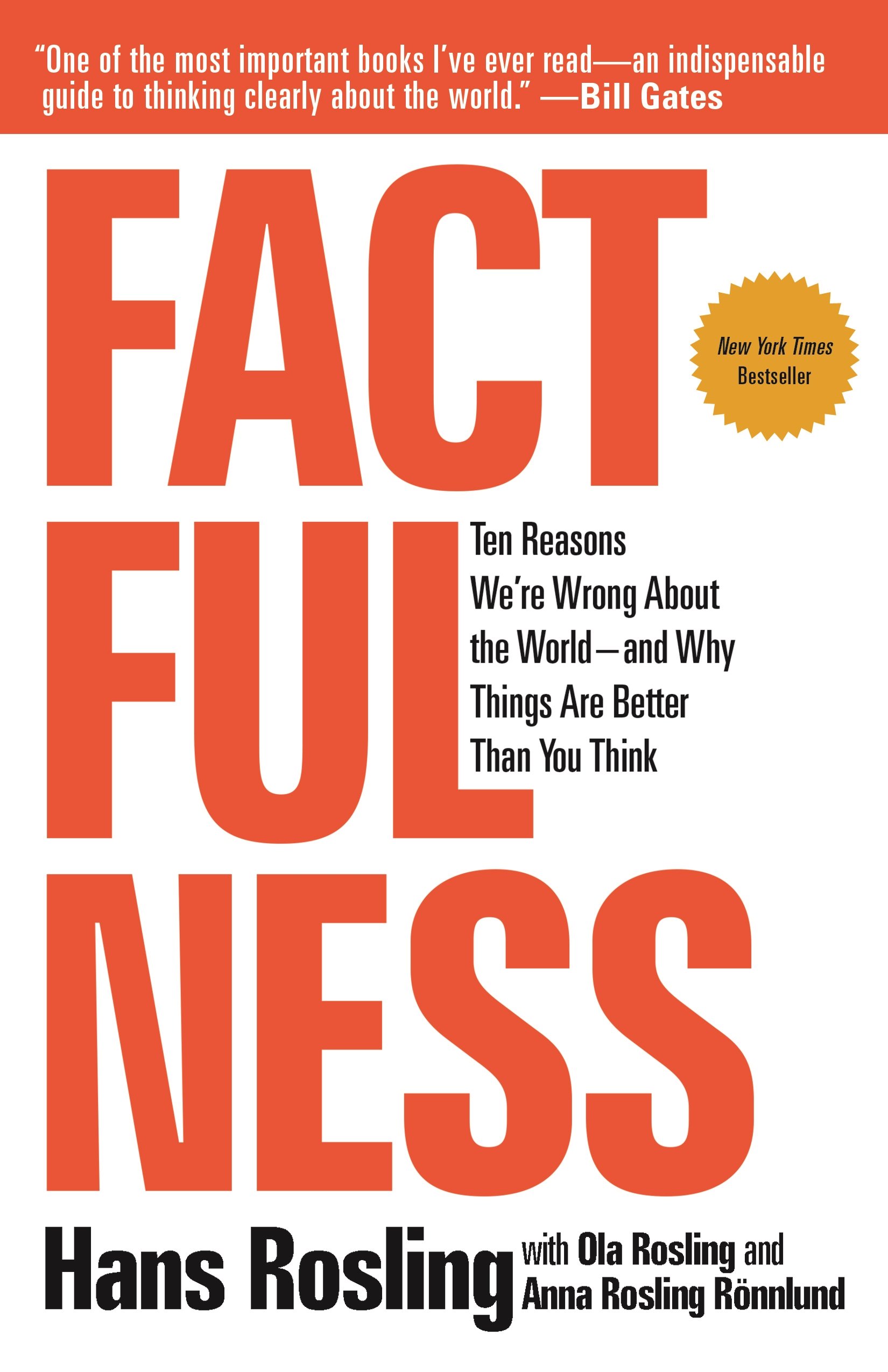Things Are Worse Than Ever! (Except They’re Not.)
Below is a list of “facts” you’ve probably heard — maybe in school, online, or from your trusted source TikTok. Take a look:
Fact or Fiction?
- The world is getting more dangerous every year.
- Global poverty is at an all-time high.
- Most people in the world don’t have access to electricity.
- Natural disasters are killing more people now than ever before.
- I never got banned in a video game (more specifically league of legends)
Nod your head to at least one of those? Yeah… same.
But here’s the twist:
They’re all FALSE. Gotcha. 😏
(Except the last one… Let’s not talk about it…)
______________________________________________________
Your Brain: Great for Memes, Terrible at Global Trends
These facts aren’t just mildly off — they’re wildly, outrageously, statistically incorrect. And yet, so many of us believe them. Why? Because we’ve been trained to see the world through a lens of doom, drama, and outdated info.
Enter Factfulness by Hans Rosling: a life-changing, brain-refreshing book that takes all those gloomy misconceptions and lovingly bulldozes them with cold, hard data — and a weird number of bubble charts.
Rosling doesn’t just tell you the world is getting better — he proves it, and shows how your instincts (like focusing on the dramatic or assuming the worst) are tricking you. By the end of the book, you’ll be smarter, calmer, and maybe a little annoyed that no one told you sooner.
Rosling introduces the Gap Instinct, Negativity Instinct, and other mental traps that basically mean your brain is out here catastrophizing like it’s auditioning for a soap opera. Take the Gap Instinct, for example, it’s that little voice in your head that insists the world is divided into two neat boxes: the rich and the poor, the developed and the developing, the haves and the have-nots. You imagine a dramatic canyon between “us” (iPhone users) and “them” (Android users). Classic soap-opera-level exaggeration (or is it?).

The Gap Instinct tricks you into seeing a divide where there’s a continuum. Most of the world doesn’t live in extreme poverty or extreme wealth — they live somewhere in the middle. He breaks it down into four income levels, and the majority of people are chilling right in Levels 2 and 3: they have basic electricity, their kids go to school, they own a bike, and they are probably hard stuck bronze in Valorant like me (or am I?).

Surprise! Most People Aren’t Dying in Disasters
The Gap Instinct loves drama. It feeds off news stories that show the worst or the best — never the 5 billion people living life somewhere in between. And let’s be honest, “Bangladesh family eats dinner under fluorescent lighting after rice purchase” isn’t exactly front-page material.
So what does Rosling want you to do?
Recognize that most of humanity is on a spectrum, not stuck on either side of a dramatic chasm. And once you kill the Gap Instinct, suddenly the world doesn’t look quite so hopeless — just… complicated and full of progress you probably never noticed. So grab a bubble chart, ditch the despair, and embrace Factfulness: the uplifting slap in the face you didn’t know you needed.
______________________________________________________
Plot Twist: You’ve Been Wrong This Whole Time (And So Was I)
Whew. If you made it this far, congrats — you’ve officially survived a reality check, a League confession, and an emotional rollercoaster powered by graphs.
Let’s circle back to those “facts” I dropped at the beginning. Sounded convincing, right? That’s the thing — misinformation isn’t always loud and obvious. Sometimes it shows up dressed in a suit, quoting stats from 1995, and convincing you the world is ending while you’re just trying to eat cereal in peace.
But Factfulness pulls back the curtain. It’s not saying the world is perfect — just that you’re probably wrong about how bad it really is. (Tough love, but the charts are cute.)
So here’s the deal:
Yes, the world has problems.
No, the sky isn’t falling.
And yes… okay fine, I did get banned in League one time. Let it go.
In the end, Factfulness isn’t just a book — it’s a call to chill.
To question your instincts.
To stop treating headlines like prophecy.
And maybe, just maybe, to trust data more than your TikTok feed.
So next time someone drops a “fact” that sounds suspiciously depressing, hit them with a smile and say,
“Actually… Hans Rosling says otherwise.”
Then walk away slowly. Let the data do the mic drop.
And if they still don’t believe you?
Hand them this book. Or better yet — hand them this blog. 😉




